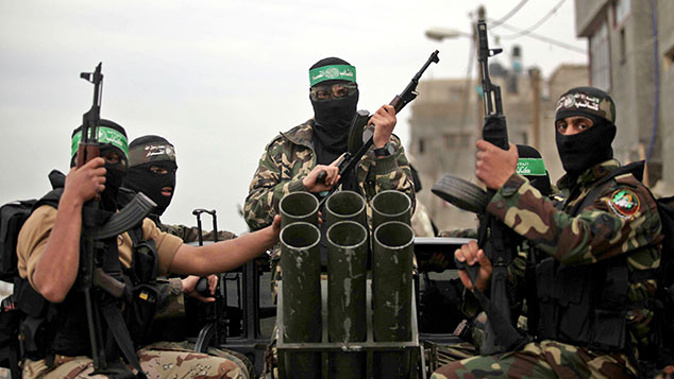
On the Jewish holiday of Simchat Torah, which fell on Shabbat October 7th, Hamas initiated a barbaric terror attack against Israel, committing grave war crimes such as the indiscriminate murder of hundreds of individuals, the injuring of thousands, and the kidnapping of innocent elderly, mothers with infants, children, young men, women, soldiers, and bodies transporting them to the Gaza Strip. All the while, they launched more than 3,500 rockets and missiles with the clear intent of causing maximum harm to civilians in towns, cities, throughout Israel.
Consequently, Israel finds itself engaged in a war against these terrorist organizations in Gaza. Israel's security forces are diligently working to safeguard its citizens across all fronts.
The Antisemitism Cybernetic Monitoring System (ACMS), of the Ministry of Diaspora Affairs and Combating Antisemitism, shows an explosion of online antisemitic hate speech following Hamas barbaric terror attacks against Israel. Within this framework, malicious actors used the internet and social media as a propaganda tool to spread disinformation and alternative facts aimed at delegitimizing and demonizing the Jewish state.
The ACMS system recorded 31,700 antisemitic posts on October 7th (the first day of the war). This represents an increase of 530% compared to the previous day, and a 250% rise compared to the previous month (September 7, 2023). The cities leading in antisemitic discourse online (according to the number of unique users who published antisemitic posts on October 7, 2023), are Paris, New-York, Buenos Aires, Los Angeles, Marseille, and Santiago de Chile.
Most of the antisemitic discourse online (80.5%) belongs to the new antisemitism or anti-Israel sentiment in Palestinian, pro-Palestinian and progressive circles.
Radical actors from all sides of the political spectrum are celebrating Hamas’s attack on Israel, expressing joy at seeing videos of Israeli victims. The extensive use of the “laughing emoji should be noted in most publications reporting Israeli victims.
- Islamist rhetoric prevails in social media discourse featuring antisemitic rhetoric. part of the jihadist discourse is marked by apocalyptic rhetoric.
- The current war is giving new momentum to right-wing extremists, who exploits the crisis to disseminate classic antisemitic propaganda.
- In far left and pro-Palestinian camps, intersectional activists construct a ‘competitive victimhood’ narrative and create moral equivalences between Israel and Gaza terror movements.
The working definition of antisemitism: In the spirit of the Stockholm Declaration that states: “With humanity still scarred by …antisemitism and xenophobia the international community shares a solemn responsibility to fight those evils” the committee on Antisemitism and Holocaust Denial called the IHRA Plenary in Budapest 2015 to adopt the following working definition of antisemitism.
On 26 May 2016, the Plenary in Bucharest decided to:
- Adopt the following non-legally binding working definition of antisemitism:
“Antisemitism is a certain perception of Jews, which may be expressed as hatred toward Jews. Rhetorical and physical manifestations of antisemitism are directed toward Jewish or non-Jewish individuals and/or their property, toward Jewish community institutions and religious facilities.”
According to the International Holocaust Remembrance Alliance (IHRA), contemporary examples of antisemitism in public life, the media, schools, the workplace, and in the religious sphere could, considering the overall context, include, but are not limited to:
- Calling for, aiding, or justifying the killing or harming of Jews in the name of a radical ideology or an extremist view of religion.
- Making mendacious, dehumanizing, demonizing, or stereotypical allegations about Jews as such or the power of Jews as collective — such as, especially but not exclusively, the myth about a world Jewish conspiracy or of Jews controlling the media, economy, government, or other societal institutions.
- Accusing Jews as a people of being responsible for real or imagined wrongdoing committed by a single Jewish person or group, or even for acts committed by non-Jews.
- Denying the fact, scope, mechanisms (e.g., gas chambers) or intentionality of the genocide of the Jewish people at the hands of National Socialist Germany and its supporters and accomplices during World War II (the Holocaust).
- Accusing the Jews as a people, or Israel as a state, of inventing or exaggerating the Holocaust.
- Accusing Jewish citizens of being more loyal to Israel, or to the alleged priorities of Jews worldwide, than to the interests of their own nations.
- Denying the Jewish people their right to self-determination, e.g., by claiming that the existence of a State of Israel is a racist endeavour.
- Applying double standards by requiring of it a behaviour not expected or demanded of any other democratic nation.
- Using the symbols and images associated with classic antisemitism (e.g., claims of Jews killing Jesus or blood libel) to characterize Israel or Israelis.
- Drawing comparisons of contemporary Israeli policy to that of the Nazis.
- Holding Jews collectively responsible for actions of the state of Israel.
Antisemitic acts are criminal when they are so defined by law (for example, denial of the Holocaust or distribution of antisemitic materials in some countries).
Criminal acts are antisemitic when the targets of attacks, whether they are people or property – such as buildings, schools, places of worship and cemeteries – are selected because they are, or are perceived to be, Jewish or linked to Jews.
Antisemitic discrimination is the denial to Jews of opportunities or services available to others and is illegal in many countries.
The rise of antisemitism is a huge worry for Jewish communities around the world especially in Europe and the Middle East. No one should accept this as a society and please protect and defend anyone who faces this horrible form of racism and hatred.
Henri Eliot
Honorary Consul State of Israel in Auckland
Take your Radio, Podcasts and Music with you








